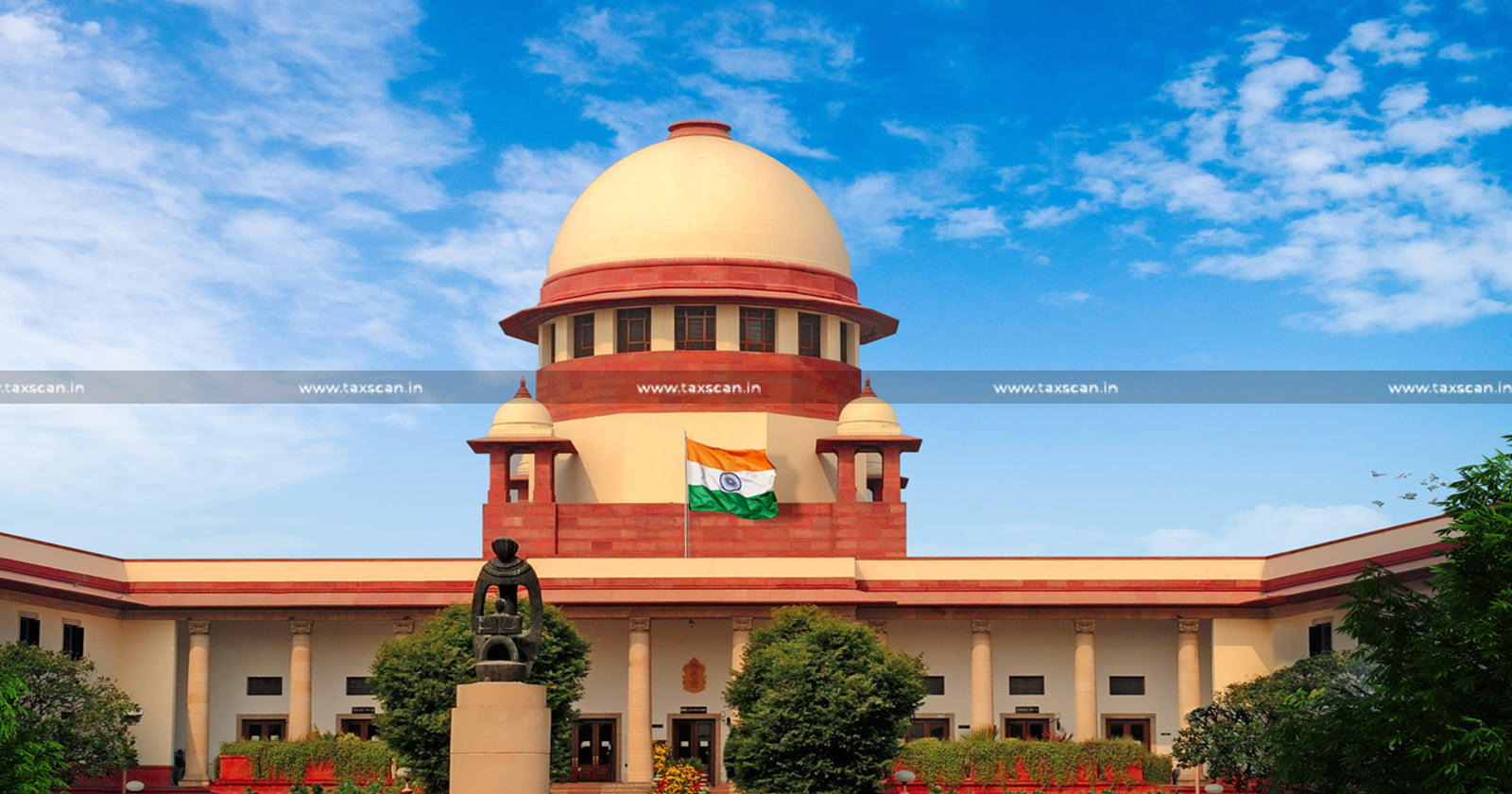[BREAKING] Relief to Jindal Steel & Power: Supreme Court upholds deletion of Addition made on Payment to SK Gupta and Group of Companies [Read Order]
Major Relief to Jindal Steel and Power, Apex Court upheld deletion of addition against payment to SK Gupta and Group of Companies

supreme court – Jindal Steel & Power – Relief – deletion – TAXSCAN
supreme court – Jindal Steel & Power – Relief – deletion – TAXSCAN
In a major relief to Jindal Steel and Power Ltd, the Supreme Court has upheld the deletion of addition made on payments made to S K Gupta and group of companies.
This brings us to the second of the additional issues which is the deletion of the addition of Rs. 3.40 Crores (approx.) made by the assessing officer on account of payment made by the assessee to SK Gupta and his group of companies.
This issue had been raised by the revenue in CIT Vs. M/s Reliance Industries Ltd.
The respondent assessee in this case is M/s Reliance Industries Ltd. and the assessment year under consideration is 2006-2007.
Assessee claimed allowance of expenditure of about Rs. 3.39 crores on account of payments made to one SK Gupta and his group of companies. The assessing officer vide the assessment order dated 19.03.2008 passed under Section 143 (3) of the Income Tax Act, referred to the statement of S.K. Gupta recorded during the search operations and held that the said person had not rendered any service to the assessee so as to receive such payments.
Therefore, the assessing officer disallowed such claim of expenditure of the assessee and added the same to the income of the assessee.
On an appeal by the assessee, CIT(A) vide the order dated 27.01.2009 confirmed the disallowance of professional fee paid by the assessee to S.K. Gupta and his group of companies.
On further appeal by the revenue, Tribunal vide the order dated 29.05.2015 set aside the view taken by CIT (A). Tribunal on perusal of the materials on record, noted that S.K. Gupta had
retracted his statement within a short time by filing an affidavit.
He thereafter got his further statement recorded where he reiterated his stand taken in the affidavit. In view of the above, the Tribunal had set aside the order of the assessing officer as affirmed by the CIT(A) and allowed the claim of the assessee.
The revenue preferred appeal before the High Court of Bombay under Section 260A of the Income Tax Act raising the above issue along with another issue.
The High Court vide the order dated 30.01.2019 answered the above issue in favour of the assessee and against the revenue by holding that no substantial question of law arose from the
decision of the Tribunal.
From the materials on record, the apex court noted that the assessing officer had solely relied upon the statements made by S.K. Gupta on 12.12.2006 and 23.12.2006 during the course of the search. However, the assessing officer overlooked the fact that within a short span of time, S.K. Gupta had retracted from the said statements by filing an affidavit on 05.02.2007. Thereafter, he reiterated the statements made by him in the affidavit dated 05.02.2007 in a statement recorded on 08.02.2007.
The Bench noted that, in the later statements, S.K. Gupta had categorically stated that he had rendered services to the assessee. He also mentioned that the name of the assessee was not referred to as one of the beneficiaries of the accommodation bills in his earlier statement, the bench further noted.
He had categorically stated that he had rendered service to the assessee and that the assessee had not obtained any bogus accommodation bills from him. Assessing officer had dis-believed the affidavit as well as the subsequent statement of S.K. Gupta without any justifiable and cogent reason. That apart when the revenue had relied upon the retracted statement of S.K. Gupta, it ought to have provided an opportunity to the assessee to cross-examine S.K. Gupta was however denied, the Supreme Court Bench observed.
It was thus noted that the revenue was not justified in disallowing the claim of professional expenses of the assessee on account of payment to S.K. Gupta and his group of companies.
Therefore, in agreement with the view noted by the High Court, the entire issue is based on appreciation of the materials on record. Tribunal had scrutinized the materials on record and thereafter had recorded a finding of fact that there were sufficient evidence to justify payment made by the assessee to SK Gupta, a consultant of the assessee, and that the assessing officer had wholly relied upon the statement of Gupta recorded during the search operation which was retracted by him within a reasonable period.
In these circumstances, the Supreme Court bench of Justice Ujjal Bhuyan and B V Nagarathna observed that there is no admissible material to deny the claim of expenditure made by the assessee.
Accordingly, this issue was answered in favour of the assessee and against the revenue.
To Read the full text of the Order CLICK HERE
Support our journalism by subscribing to Taxscan premium. Follow us on Telegram for quick updates


